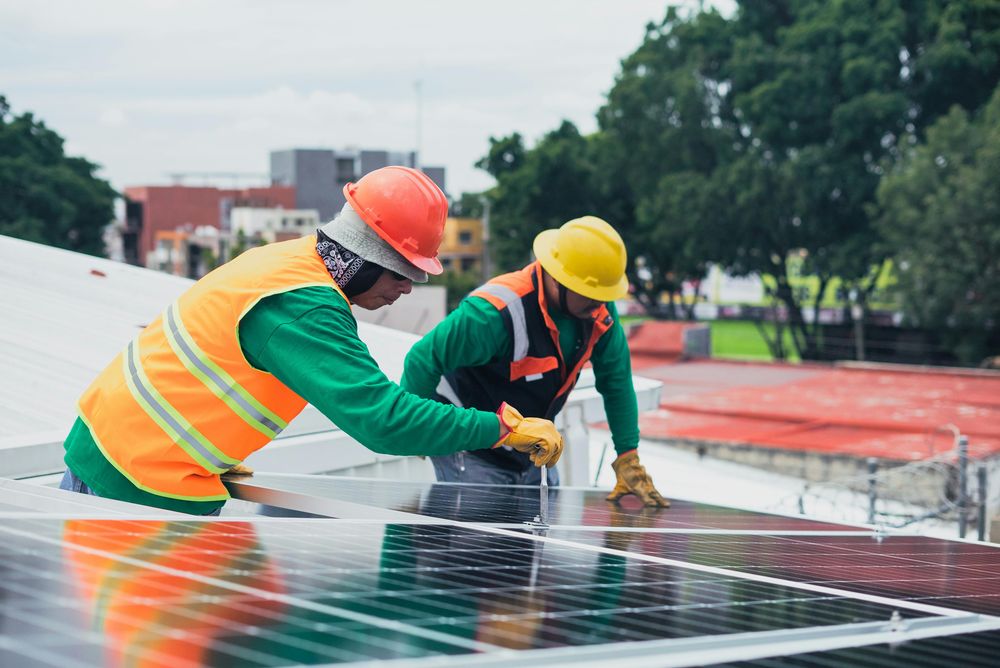Guide on Trump Re-Election Impact on Solar Energy Sector in 2025
Riddhi Kumar • 2025-01-07 • 4min read
Solar energy continues to be one of the fastest-growing renewable power sources globally by providing energy efficiency and energy security. Explore how Donald Trump's re-election could shape the solar energy industry with policy changes, trade tariffs, and the sector's resilience through corporate demand, state initiatives, and bipartisan support.

Solar energy continues to be one of the fastest-growing renewable power sources globally by providing energy efficiency and energy security. However, the re-election of Donald Trump raises important questions about the future of the solar energy sector.
Let's discuss how Trump's policies and market dynamics may shape the solar industry’s path forward, with a focus on advancements, adoption trends, and the industry’s resilience in the face of shifting priorities.
Solar Energy Sector Under Trump Administration 2025
Donald Trump’s re-election sparked widespread skepticism about the future of renewable energy, particularly in the solar industry. Public concerns were mirrored in the stock market on the day of his victory, as leading solar companies faced significant losses. Sunrun, Sunnova, and FirstSolar stocks plummeted by 27%, 43%, and 12.5%, respectively.
While these concerns are valid, it’s important to remember that the solar industry has continuously overcome challenges and obstacles. In fact, the sector has experienced significant growth in recent years despite political shifts and market fluctuations. This resilience is a testament to the potential of solar energy and its ability to adapt to changing circumstances.
The Biden administration had introduced several policies and incentives that supported clean energy initiatives. However, with Trump’s inauguration on January 20, 2025, these policies may face changes that could impact the solar industry . Let's discuss these potential changes in detail!
Potential Policy Changes & Their Impacts
A second Trump administration is expected to bring about several policy changes that can reduce the clean energy transition, especially in the renewable energy industry and the solar industry.
Inflation Reduction Act (IRA)
One of the significant policy changes that can impact the solar industry is the Inflation Reduction Act. The Inflation Reduction Act ( IRA ) provides 30% tax credits for residential and commercial solar installations. This incentive has been a significant driver of the solar industry’s growth, but it has an expiration date of December 31, 2025.
If Trump administration decides not to extend this incentive program, it could significantly impact the adoption of solar energy by making it less financially viable. This could also result in a decrease in demand for solar products and services.
State-Level Tax Incentives
With Trump's re-election, there are concerns that some states could align with his administration's stance on renewable energy, potentially reducing or eliminating state-level incentives for solar energy. This could impact the solar industry in those states and slow down the adoption.
However, many states will continue to offer tax credits and rebates to support solar installations, ensuring solar power remains both accessible and affordable. Despite challenges, the overall outlook for state-level incentives in many areas remains positive, driving growth in renewable energy.
Trade Tariffs
Trade Tariffs are used to promote balance in international trade and address issues of unfair pricing. The president indicated that he would impose trade tariffs by at least 10% on all solar imports to the U.S., with Chinese import tariffs facing an increase of around 60%.
This move can result in higher component costs and create multiple challenges for solar deployment efforts. According to the Solar Energy Industries Association ( SEIA ), because of new trade tariffs, the cost of solar panel imports can increase by 10-15% . This may result in increased costs for consumers looking to install solar systems.
Regulatory Rollbacks
Another potential impact on the solar industry could be regulatory rollbacks. During his first term, Trump rolled back several environmental regulations, including the Clean Power Plan. Relaxed environmental regulations could shift priorities toward traditional energy sources, potentially reducing the urgency of transitioning to renewable energy.
Such changes might delay progress in solar energy deployment and innovation in solar technology. Changes to environmental regulations could benefit the fossil fuel industry, potentially at the expense of renewable energy development.
Fossil Fuel Production
The Trump administration's emphasis on expanding fossil fuel production, including resuming LNG export permits and reducing regulatory burdens, could create challenges for the solar industry. With the U.S. leading as the largest LNG exporter in 2023, the administration's policies are likely to prioritize fossil fuels through deregulation and increased drilling.
This shift may divert resources and policy focus away from renewable energy initiatives, limiting incentives for solar energy development. As a result, the solar industry could face slowed growth and reduced competitiveness in an energy market increasingly dominated by fossil fuel priorities.

Factors Supporting the Solar Industry's Resilience
While the potential policy changes under a second Trump administration can have significant impacts on the solar industry, there are also factors that support its resilience and growth:
Corporate Demand
Corporate demand is a significant factor supporting the resilience of the solar industry, even in the face of potential policy changes or regulatory rollbacks. Large corporations have made substantial commitments to renewable energy while also having long-term financial savings.
Companies want to rely on solar energy and that's why are investing heavily in renewables through Power Purchase Agreements (PPAs) and virtual PPAs (vPPAs). Also, there have been major developments in artificial intelligence which resulted in rising demand for data centers. The demand for data centers is expected to increase by 160% by 2030, further driving corporate investment in solar which indicates a strong demand for solar energy.
State and Local Government Commitment
State and local governments play a crucial role in shaping energy policy and can significantly influence the trajectory of the renewable energy sector. Many states have committed to expanding clean energy and have introduced their own incentives to reduce greenhouse gas emissions.
This decentralized approach ensures that clean energy projects can continue to develop, even if the federal government shifts its focus to fossil fuels. The economic benefits of solar and other renewable energy make it likely that states will continue to support these projects.
Bipartisan Support
The solar industry also has support from both sides of the political spectrum. Renewable energy has been a topic of bipartisan agreement, with members of both parties acknowledging the need for clean energy solutions and advanced energy infrastructure.
This support is evident in states like Texas and South Carolina, where Republican-led governments have implemented policies to promote renewable energy growth. This bipartisan support can help insulate the solar industry from potential policy changes under a second Trump administration.
This bipartisan support, combined with corporate demand, and state and local initiatives provides a foundation of support for the solar industry!
Conclusion
Despite potential challenges posed by policy changes under a second Trump administration, the solar energy sector remains resilient and promising. Corporate demand for renewable energy, state and local government commitments, and bipartisan support for clean energy initiatives provide a strong foundation for continued growth.
Solar energy's long-term benefits, including economic growth, reduced electricity costs, energy independence, and environmental sustainability for climate change, still make it an attractive choice for homeowners and businesses.